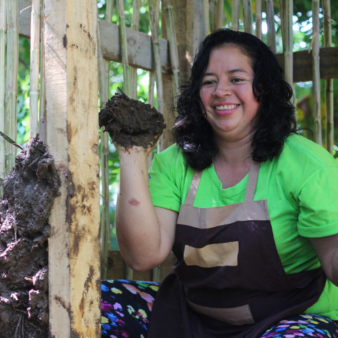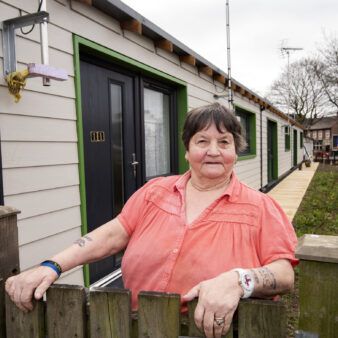The autonomous region of Gorno-Badakhshan in Tajikistan is home to some of the world’s highest mountains. Winters are long and very cold – average night-time temperatures remain below freezing for seven months of the year.
The region is sparsely populated and most of its 250,000 inhabitants live in poorly insulated homes that are in disrepair and which allow vital heat to leak out through broken windows and doors. Typical heating and cooking methods are inefficient and require large amounts of fuel, so people have to resort to cutting down trees and shrubs to use as firewood.
Economic opportunities are scarce and many people depend on money sent to them by relatives who have migrated to Russia and Kazakhstan. The remoteness of the region also means everyday goods are more expensive than in other parts of Tajikistan, placing a further strain on household income.
The cost of beneficial home improvements is out of reach for most people but an organisation is helping low-income households access energy-saving technology by offering loans to pay for the work.
Madina va Hamkoron was founded in 2009 as a private business by Madina, a women-led NGO (non-governmental organisation), which became convinced of the effectiveness of microloans in helping to tackle poverty after participating in an International Organisation for Migration programme between 2002 and 2006.
Madina va Hamkoron’s Warm Comfort loans pay for items such as insulated doors and windows, fast furnaces, solar water heaters, energy-efficient stoves for heating and cooking, water-powered pumps, rainwater catchment systems, and drip irrigation systems.
It has issued loans to more than 1,000 households, benefitting more than 8,000 people and helping to reduce the strain on the region’s natural resources.
How it works
Warm Comfort was developed by Madina va Hamkoron in conjunction with three other micro-finance institutions – Haqiqi-Jahon, Rushdi Ishkashim and Rushdi Vodii Zerafshan – with support from the German Corporation for International Co-operation (GIZ).
The scheme emerged from a GIZ project, which worked with local craftsmen to develop thermal insulation products, such as double-glazed windows and wooden doors. This project led to the formation of the Zindagi carpenters’ co-operative in 2010, which is a partner in the Warm Comfort scheme.
Representatives from Madina va Hamkoron visit rural villages to raise awareness about heat insulation and green micro-loans. If someone is interested in a Warm Comfort loan, they are connected with a local carpenter from the Zindagi co-operative, who assesses the work required.
Once the customer has agreed works with their carpenter, they are assessed by a local loan officer, who provides information to a loan committee. If approved, Madina va Hamkoron pay Zindagi directly to carry out the work, helping to maintain high standards. The cost includes manufacture and delivery, while Zindagi guarantees products for 12 months.
Many of the carpenters recruited by Zindagi are returning migrants who are no longer allowed to live and work in Russia. Most had been working in construction and bring these skills to the co-operative, which trains them to manufacture and fit thermal insulation and alternative energy products. As the products are constructed locally by Zindagi carpenters, they can be offered to customers far more cheaply than anything transported from the nearest urban centre.
Warm Comfort loans are based on what households can afford and capped at a maximum of USD$500. Repayments are monitored by local loan officers and spread over 12 months at 2.5 per cent interest. If the work required is too expensive it can be carried out in stages. On average, the cost of the loan is recouped in savings within two years, due to customers’ reduced energy and fuel consumption.
Uptake of the loans has been high, despite the fact the scheme has not been widely advertised. Up to January 2018, Madina va Hamkoron had issued 960 Warm Comfort loans, allowing low-income households to purchase more than 750 doors and windows, 200 fast furnaces, 10 solar water heaters, and 358 stoves.
The scheme was set up with the help of a €30,000 (USD$35,195) grant from GIZ. This money funded coaching for staff at Madina va Hamkoron and equipment for the Zindagi co-operative. Experts in energy-saving adaptations and alternative energy were seconded from Germany to provide training and expertise.
In addition to the Warm Comfort loan, Madina va Hamkoron issues microloans for other purposes, such as business development, education, family planning and purchasing consumer goods. The organisation covers most of its costs (transport, salaries and operating costs) through this wider, more profitable loan portfolio.
Impact
Economic opportunities are scarce in Gorno-Badakhshan and the Warm Comfort scheme provides much-needed work for more than 70 members of the Zindagi co-operative. The project has also prompted the formation of four local resident repair teams.
Madina va Hamkoron’s micro-loan model is flexible and designed to be accessed by people on very low incomes. Without a Warm Comfort loan, more than two in three people living in Gorno-Badakhshan could not afford insulation and other energy-saving technologies.
Having an energy-efficient home has a positive impact on the health and wellbeing of people living in remote rural communities. They no longer have to spend time gathering excessive amounts of fuel, save money, and are better protected from extreme weather conditions.
One of the scheme’s key objectives is to reduce the strain on the region’s natural resources. It is achieving this by raising awareness about energy efficiency and environmental sustainability and reducing the need to burn wood and shrubs for fuel, which prevents further deforestation.
The future
Madina va Hamkoron intends to seek a grant to continue its work promoting thermal insulation and energy-saving products as solutions that save money and natural resources for people on very low incomes.
The company is keen to share its experiences in providing green microloans with other providers and two additional organisations are now offering similar loans for thermal insulation.
Despite this welcome competition, demand for Warm Comfort loans exceeds the available funds. Madina va Hamkoron plans to raise additional lower cost loan capital so it can increase the number of loans it issues and expand the list of products on offer.
The popularity of the Warm Comfort scheme demonstrates that sustainable lending is a viable way to tackle poverty and ensure that Gorno-Badakhshan’s inhabitants can stay warm when winter inevitably arrives.
View the full project summary here – available in English only
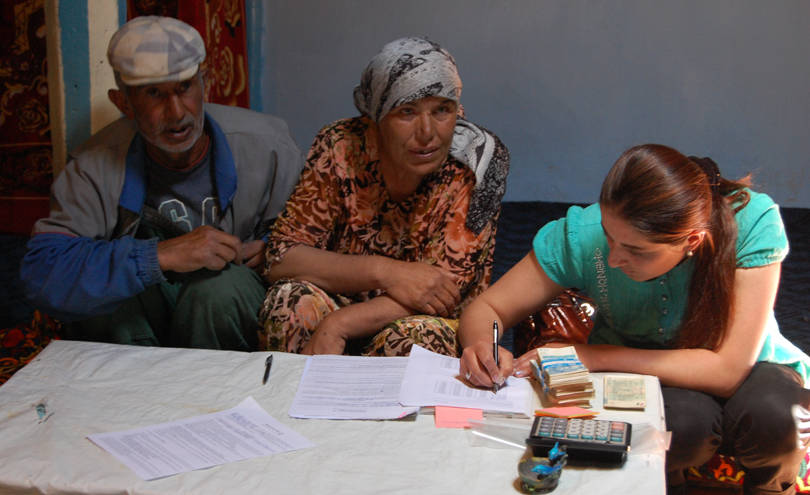
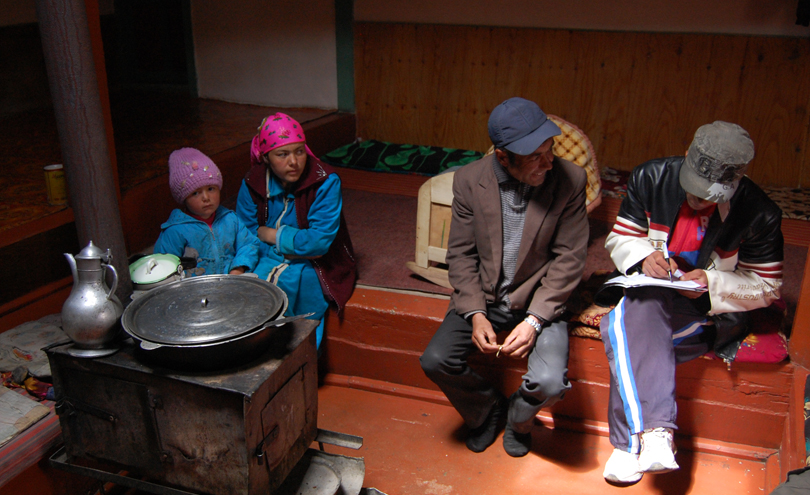
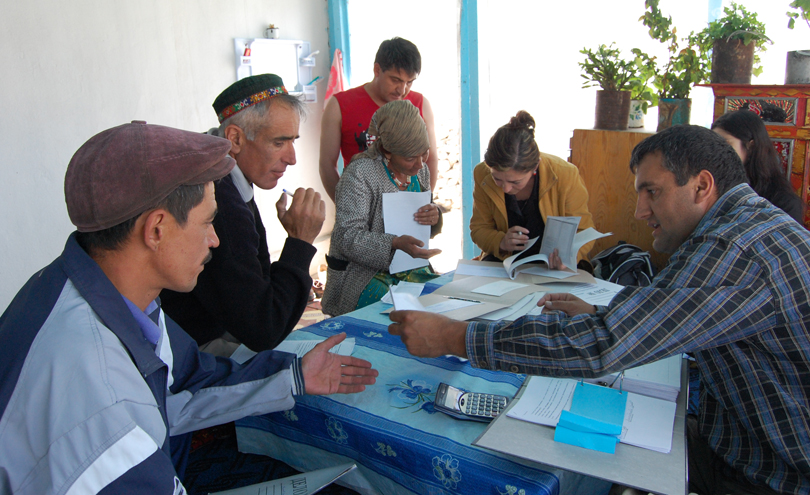
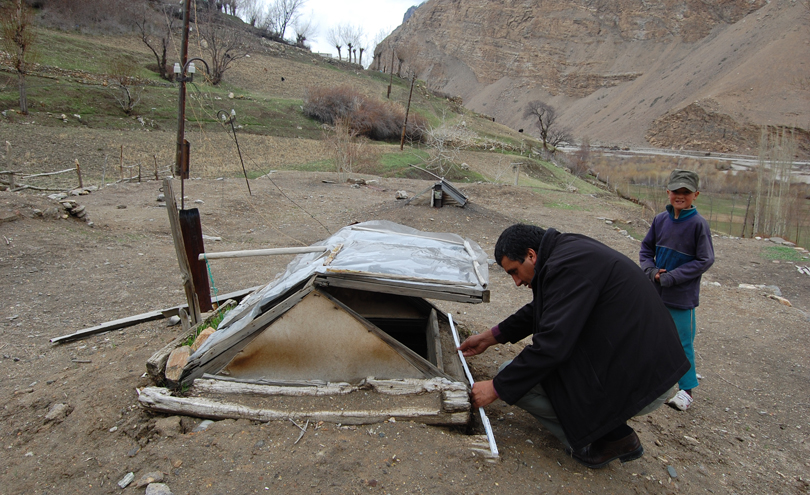
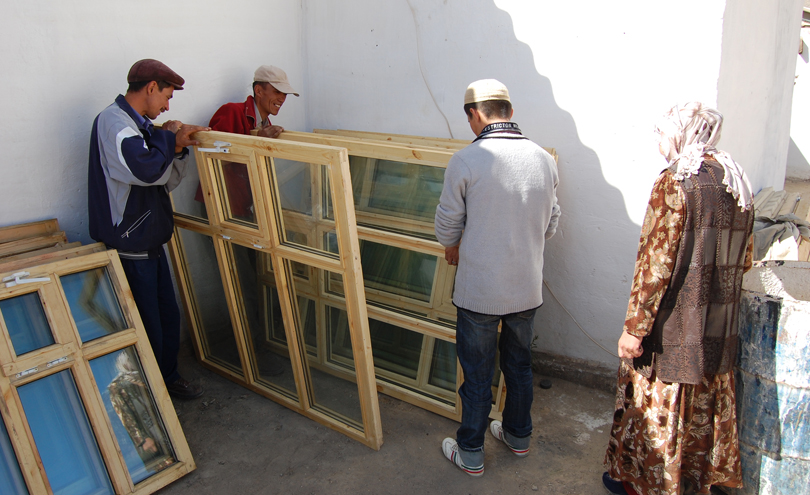
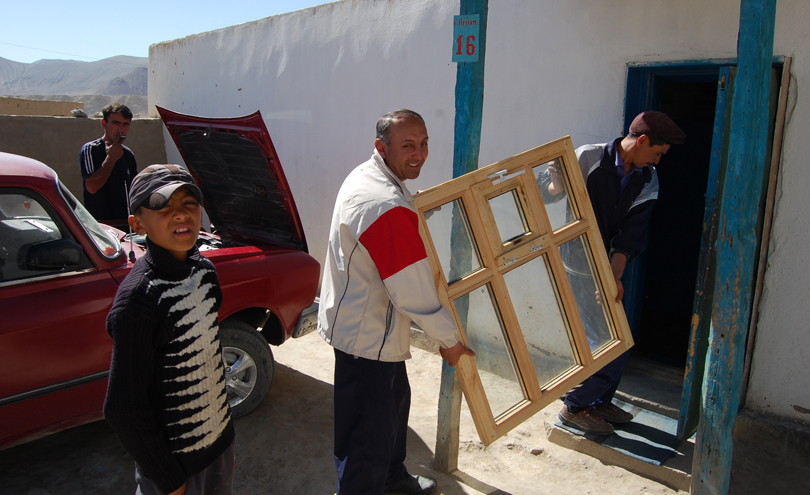
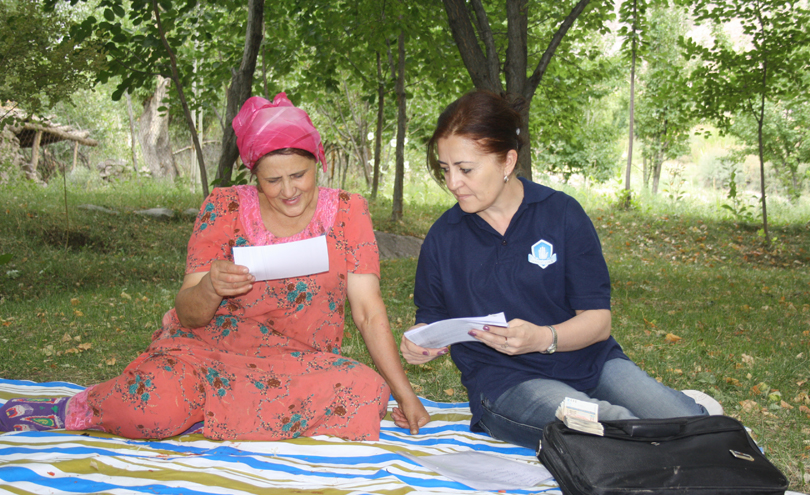
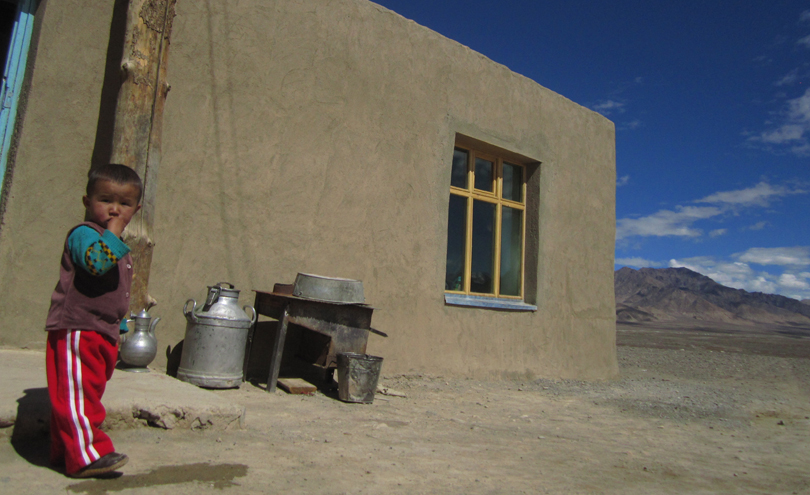

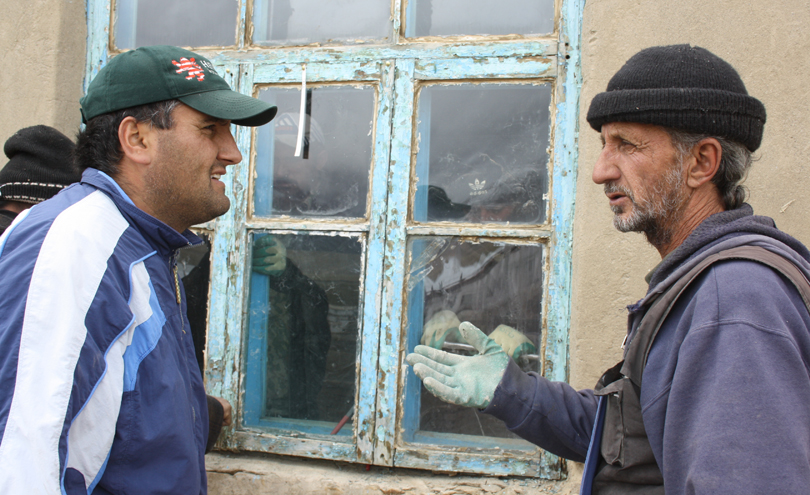

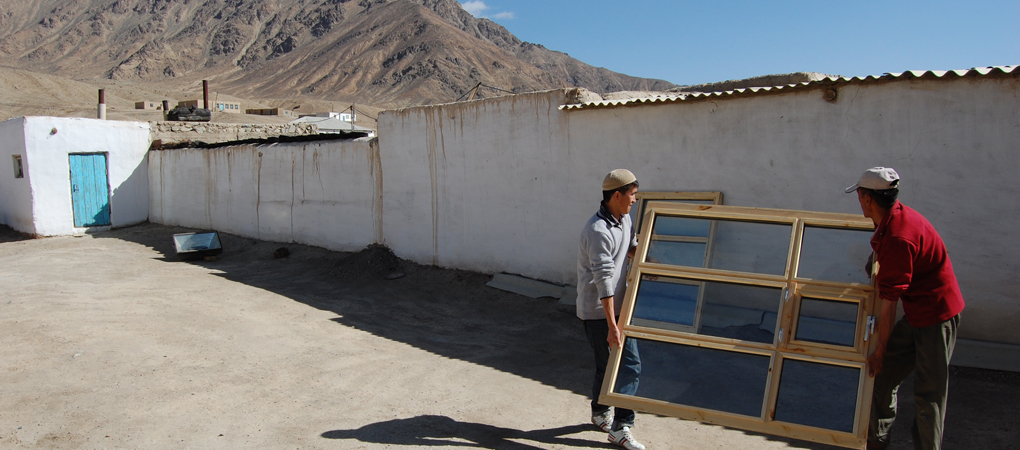
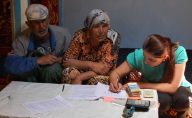
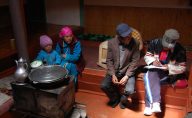
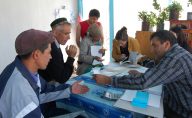
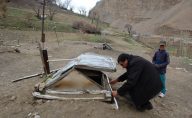
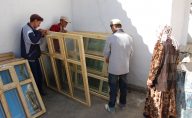
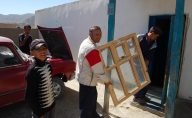
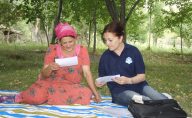
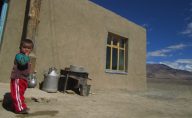
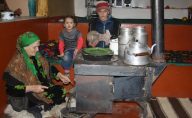
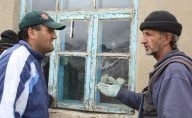
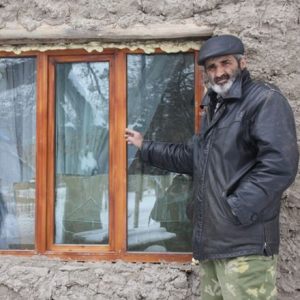 Shukrikhudoev Komil received a loan of 4,206 Tajikistani somoni (USD$448) from Madina va Hamkoron for purchasing windows and doors.
Shukrikhudoev Komil received a loan of 4,206 Tajikistani somoni (USD$448) from Madina va Hamkoron for purchasing windows and doors.